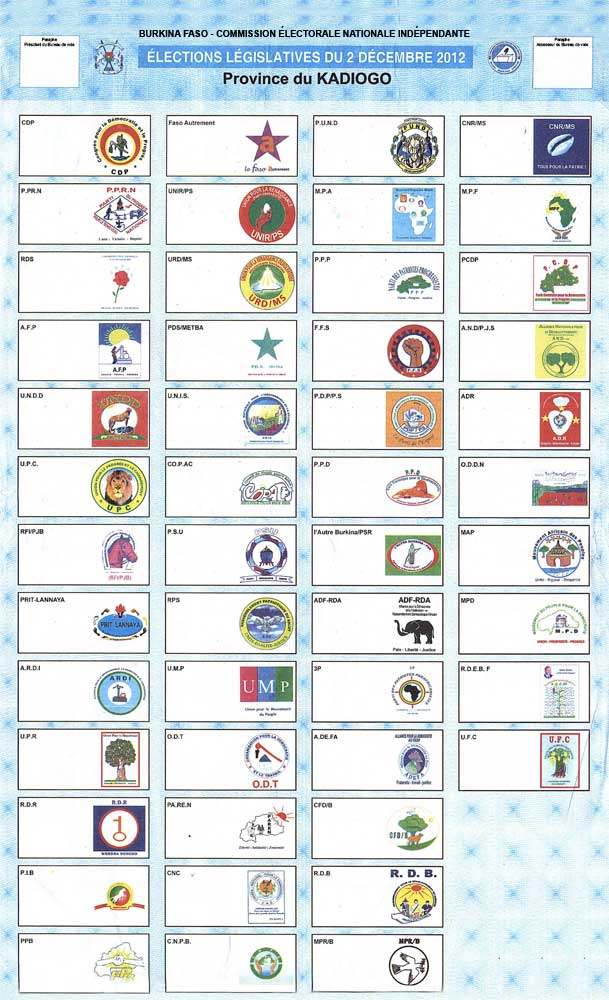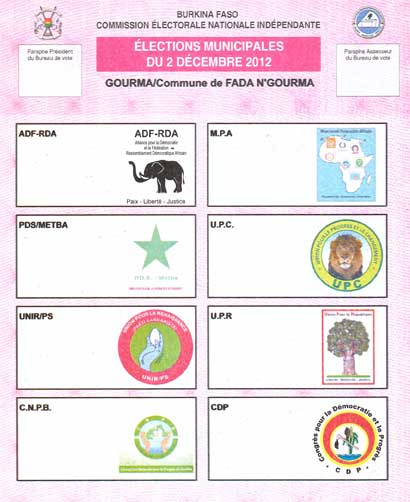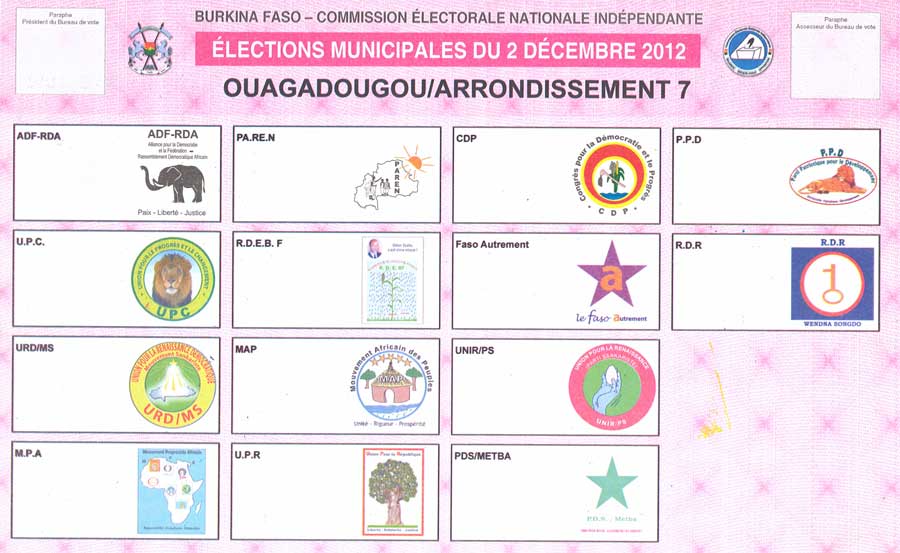Since 2001 the Electoral Law of Burkina Faso requires that single ballots be used for all types of elections—presidential, legislative and municipal. For each type of election all candidates or parties must appear on one single ballot located at the different polling stations. With the exception of the presidential election which uses photos of the candidates on the ballot, other elections use the logos of political parties on the ballots along with the lists of candidates to help voters distinguish between candidates and/or party lists. The order of candidates and/or party lists on the ballot takes place after a random draw organized by the CENI between the various competitors.
The implementation of a single ballot has been an effective way to ensure the fairness of elections. Indeed, it helps prevent the possibility of vote buying through the technique of returning ballots by voters. In other countries where multiple ballots are used, candidates or political parties will sometimes ask voters to return their opponents’ ballots in exchange for money. Not only does this practice encourage electoral corruption, it also violates the secrecy of voting.
The principle of multiple ballots consists of making different ballots distinguished according to color and logos for each political party or candidate. The use of a single ballot is much less expensive as it does not require that all political parties have the same number of ballots. For example, the use of multiple ballots for an election in which 10 political parties are involved would require the production of all ballots in equal numbers for each party. It is also evident that the single ballot has the advantage of simplifying the vote for the voter; the voter goes to the voting booth with a single ballot instead of several.
However, there are also a number of limitations to the single ballot. Its use can prove difficult for an illiterate or poorly educated voter. When many political parties participate in a ballot, it may be difficult for the voter to identify the logo of the party for which he would like to vote. In Burkina Faso, there has been a sharp increase in the number of void ballots since the establishment of a single ballot. For instance, during the December 2012 combined election there were 263,383 invalid ballots, roughly 11% of the total votes cast for the general election.
The single ballot does not prevent the possibility of fraud. In an effort to avoid some of the transparency measures put in place by the CENI, some political parties were able to make parallel ballots. They organized a system of early voting which targeted poor and illiterate voters the day before elections and on the day of elections the voter arrived at the the polls already equipped with a single ballot that had been filled out with their ‘vote’ in advance. In principle, the counting procedures should make it possible to count such a ballot as a spoiled ballot because the authentic ballots from each polling station display the initials of president of the polling station and a member of the polling station who is randomly chosen the morning of the election.
Useful links and documentary resources



This post is also available in: Français (French)

